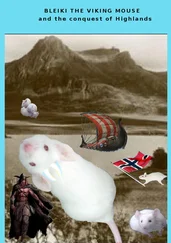“I begin to understand,” said the prince, sighing; “such a tumult I have more than once experienced, without knowing the cause; and where should I seek for an object such as you describe, in this dismal solitude?”
A little further conversation ensued, and the first amatory lesson of the prince was complete.
“Alas!” said he, “if love be indeed such a delight, and its interruption such a misery, Allah forbid that I should mar the joy of any of its votaries.” He opened the cage, took out the dove, and having fondly kissed it, carried it to the window. “Go, happy bird,” said he, “rejoice with the partner of thy heart in the days of youth and springtime. Why should I make thee a fellow-prisoner in this dreary tower, where love can never enter?”
The dove flapped its wings in rapture, gave one vault into the air, and then swooped downward on whistling wings to the blooming bowers of the Darro.
The prince followed him with his eyes, and then gave way to bitter repining. The singing of the birds which once delighted him, now added to his bitterness. Love! love! love! Alas, poor youth! he now understood the strain.
His eyes flashed fire when next he beheld the sage Bonabben. “Why hast thou kept me in this abject ignorance?” cried he. “Why has the great mystery and principle of life been withheld from me, in which I find the meanest insect is so learned? Behold all nature is in a revel of delight. Every created being rejoices with its mate. This — this is the love about which I have sought instruction. Why am I alone debarred its enjoyment? Why has so much of my youth been wasted without a knowledge of its raptures?”
The sage Bonabben saw that all further reserve was useless; for the prince had acquired the dangerous and forbidden knowledge. He revealed to him, therefore, the predictions of the astrologers, and the precautions that had been taken in his education to avert the threatened evils. “And now, my prince,” added he, “my life is in your hands. Let the king your father discover that you have learned the passion of love while under my guardianship, and my head must answer for it.”
The prince was as reasonable as most young men of his age, and easily listened to the remonstrances of his tutor, since nothing pleaded against them. Besides, he really was attached to Eben Bonabben, and being as yet but theoretically acquainted with the passion of love, he consented to confine the knowledge of it to his own bosom, rather than endanger the head of the philosopher.
His discretion was doomed, however, to be put to still further proofs. A few mornings afterwards, as he was ruminating on the battlements of the tower, the dove which had been released by him came hovering in the air, and alighted fearlessly upon his shoulder.
The prince fondled it to his heart. “Happy bird,” said he, “who can fly, as it were, with the wings of the morning to the uttermost parts of the earth. Where hast thou been since we parted?”
“In a far country, my prince, whence I bring you tidings in reward for my liberty. In the wild compass of my flight, which extends over plain and mountain, as I was soaring in the air, I beheld below me a delightful garden with all kinds of fruits and flowers. It was in a green meadow, on the banks of a wandering stream; and in the centre of the garden was a stately palace. I alighted in one of the bowers to repose after my weary flight. On the green bank below me was a youthful princess, in the very sweetness and bloom of her years. She was surrounded by female attendants, young like herself, who decked her with garlands and coronets of flowers; but no flower of field or garden could compare with her for loveliness. Here, however, she bloomed in secret, for the garden was surrounded by high walls, and no mortal man was permitted to enter. When I beheld this beauteous maid, thus young and innocent and unspotted by the world, I thought, here is the being formed by heaven to inspire my prince with love.”
The description was a spark of fire to the combustible heart of Ahmed; all the latent amorousness of his temperament had at once found an object, and he conceived an immeasurable passion for the princess. He wrote a letter, couched in the most impassioned language, breathing his fervent devotion, but bewailing the unhappy thraldom of his person, which prevented him from seeking her out and throwing himself at her feet. He added couplets of the most moving eloquence, for he was a poet by nature, and inspired by love. He addressed his letter—”To the unknown beauty, from the captive Prince Ahmed”; then, perfuming it with musk and roses, he gave it to the dove.
“Away, trustiest of messengers!” said he. “Fly over mountain and valley, and river, and plain; rest not in bower, nor set foot on earth, until thou hast given this letter to the mistress of my heart.”
The dove soared high in air, and taking his course darted away in one undeviating direction. The prince followed him with his eye until he was a mere speck on a cloud, and gradually disappeared behind a mountain.
Day after day he watched for the return of the messenger of love, but he watched in vain. He began to accuse him of forgetfulness, when towards sunset one evening the faithful bird fluttered into his apartment, and falling at his feet expired. The arrow of some wanton archer had pierced his breast, yet he had struggled with the lingerings of life to execute his mission. As the prince bent with grief over this gentle martyr to fidelity, he beheld a chain of pearls round his neck, attached to which, beneath his wing, was a small enamelled picture. It represented a lovely princess in the very flower of her years. It was doubtless the unknown beauty of the garden; but who and where was she — how had she received his letter, and was this picture sent as a token of her approval of his passion? Unfortunately the death of the faithful dove left every thing in mystery and doubt.
The prince gazed on the picture till his eyes swam with tears. He pressed it to his lips and to his heart; he sat for hours contemplating it almost in an agony of tenderness. “Beautiful image!” said he, “alas, thou art but an image! Yet thy dewy eyes beam tenderly upon me; those rosy lips look as though they would speak encouragement: vain fancies! Have they not looked the same on some more happy rival? But where in this wide world shall I hope to find the original? Who knows what mountains, what realms may separate us; what adverse chances may intervene? Perhaps now, even now, lovers may be crowding around her, while I sit here a prisoner in a tower, wasting my time in adoration of a painted shadow.”
The resolution of Prince Ahmed was taken. “I will fly from this palace,” said he, “which has become an odious prison; and, a pilgrim of love, will seek this unknown princess throughout the world.” To escape from the tower in the day, when every one was awake, might be a difficult matter; but at night the palace was slightly guarded; for no one apprehended any attempt of the kind from the prince, who had always been so passive in his captivity. How was he to guide himself, however, in his darkling flight, being ignorant of the country?
He bethought him of the owl, who was accustomed to roam at night, and must know every by-lane and secret pass. Seeking him in his hermitage, he questioned him touching his knowledge of the land. Upon this the owl put on a mighty self-important look. “You must know, O prince,” said he, “that we owls are of a very ancient and extensive family, though rather fallen to decay, and possess ruinous castles and palaces in all parts of Spain. There is scarcely a tower of the mountains, or a fortress of the plains, or an old citadel of a city, but has some brother or uncle, or cousin, quartered in it; and in going the rounds to visit this my numerous kindred, I have pryed into every nook and corner, and made myself acquainted with every secret of the land.”
Читать дальше












